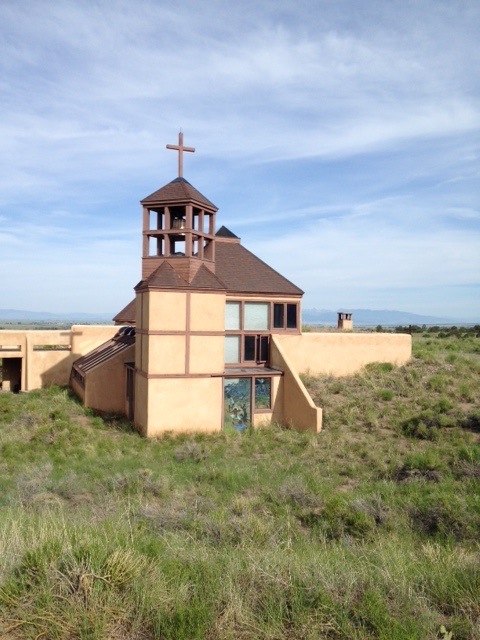“A wise scribe,” Jesus said, “is like the master of a household who brings out of his treasure what is new and what is old” (Matthew 13:52). There’s an old and valuable resource in the leadership treasury to which I regularly return: The Rule of Saint Benedict (Liturgical Press, 1992), written in the sixth century by Benedict of Nursia (c. 480-547) to guide the monastic communities which sprang-up in response to his call for holy living and church renewal.
Many monastic communities in the western world follow a version of Benedict’s Rule. Last week, I was with the Carmelite monastics who live and work at the Nada Hermitage near Crestone, CO (www.spirituallife.org). While there, I immersed myself again in the ancient wisdom which Benedict’s Rule has for contemporary leaders.
Leadership Grounded in Listening to God
The Rule begins, ”Listen, my child,” and that summons to receptive listening for God’s voice is a constant refrain. There are instructions about how to chant the Psalms, how to observe silence, and how to benefit from the reading of books. While some of the specifics might strike us as archaic, their intention still matters: to enhance our awareness that we are never on our own even when we are alone. Contrary to how we might feel in some of the most challenging circumstances we face in life and ministry, God is both with us. In the context of a prayerful pattern of expectant listening, we can count on God to guide us and to provide what we need to answer the call God has placed on our lives. Expectant listening is an indispensable gift and demand of leadership.
A Rhythm of Solitude and Togetherness
Benedict knew that a vital spiritual life and good leadership require solitary reflection, prayer, and rest and also times of shared worship, celebration, and work. His Rule structures the functioning of a monastic community in a way that gives all its members an opportunity to honor their need for both solitude and togetherness.
We’re aware that some leaders are introverts for whom solitude comes more naturally, while others are extraverts for whom the times with the community are more enjoyable. Benedict pushes us to realize that, whatever our default mode, we need to tend to both ends of this polarity. Introverts invest the renewal they gain from aloneness in their engagement with others, and extraverts use the energy they gain from community to tune their hearts and minds to the gifts which come from silence.
Similarly, in his appropriation of family systems theory for religious leaders, Edwin Friedman said that clergy need to be self-differentiated from, but to stay connected to, the congregations they lead, all while remaining a non-anxious presence. Benedict’s wisdom about solitude and togetherness helps us here. The task of self-differentiation—knowing our own nonnegotiable values and taking stands consistent with them—requires time away from the pressure and demands of community life, time for disciplined and strategic thinking. The challenge of staying connected—nurturing relationships even with people who stand in different places than we do—grows from a commitment to a quality of community life in which love for one another does not depend on agreement with each other.
Awareness of Individual Needs
Benedict’s Rule aims for a community of essential equality among its members, but Benedict knew that equality of status does not always mean sameness of treatment. Demands depend on the capacities and conditions of individual members. For that reason, the Rule instructs the Abbot or Prioress to have particular compassion for children and for the elderly and to recognize their need to be treated less strictly with regard to the time of their meals and the amount of food they receive (chapter 37). Similarly, assignments of physical labor should consider the relative strength and health of the monastics; they should neither be “idle, nor so wearied with the strain of work that they are driven away” (Chapter 48).
Leaders need to know the people they lead well-enough to recognize their current abilities and their emerging potential. Without such knowledge, it’s possible to frustrate them by expecting too little of them, or to dishearten them by giving them more responsibility than they can healthfully bear. Effective leaders seek a balance between challenging others to develop their latent gifts and not demanding so much of them that they risk burnout.
Always Beginning
Benedict says that he wrote his “little rule for a beginning.” Thomas Merton, who lived in a community governed by the Rule, observed, “We will never be anything but beginners, all our lives.” It’s good news: the journey to effective leadership and, even more, into Christlikeness begins anew each day.

Leave a Reply